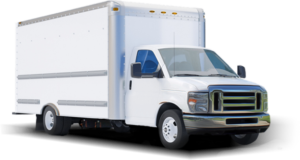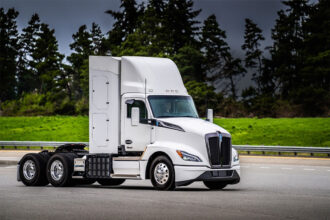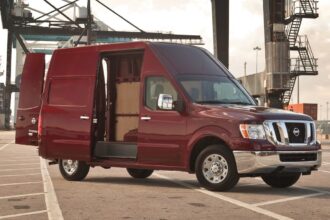Table of Contents
Ever wondered how you to dive headfirst into the world of logistics without prior experience? Have you contemplated a career as a freight broker? These behind-the-scenes heroes of the freight industry play a pivotal role in orchestrating the smooth flow of goods through the supply chain. But how does one venture into this dynamic profession, especially if you’re starting from scratch?
Imagine connecting companies with the perfect shippers, ensuring goods reach their destination efficiently, and thriving in a rapidly growing field. Check out this article to unveil the secrets of becoming a freight broker. Dissect the responsibilities of this role, explore the qualifications you need, and provide expert tips on making your mark in the industry, even if you’ve never set foot in it before. And of course, we’ll break down the costs involved, so you can make an informed decision. Is the journey to becoming a freight broker worth the investment? Let’s find out together.
To Become a Freight Broker With No Experience:
- Understand the Role of a Freight Broker
- Gain Knowledge and Education
- Obtain a USDOT Number
- Acquire a Freight Broker License
- Establish Relationships with Carriers
- Develop Relationship with Shippers
- Obtain Freight Broker Insurance
- Utilize Technology and Software
- Comply with Legal and Regulatory Requirements
Set? Let’s move!
1. Understand the Role of a Freight Broker
To shift to a freight broker with no experience, understand the role of a freight broker.
A freight broker plays a vital role in the logistics and cargo industry by organizing shipments and connecting shippers with the right carriers to meet specific delivery needs. They act as intermediaries and focus on effective communication to ensure that cargo requirements are fulfilled. Their responsibilities include tracking shipments, negotiating prices, handling paperwork, and responding to customer inquiries. Importantly, there are no strict educational requirements to become a freight broker, and online training courses and industry experience can be valuable assets. Gaining experience in the freight industry can provide valuable insights for those looking to start a successful freight broker business.
>>>PRO TIPS: Freight Brokers Bond: How To Get It
2. Gain Knowledge and Education
To become a freight broker with no experience, gain knowledge and education.
When it comes to becoming a freight broker, education is your key to success. Consider enrolling in training programs or online courses specifically designed for this industry. These programs cover essential topics such as transportation logistics, freight rates, contract negotiation, and legal requirements. You can gain a deep understanding of the supply chain, transportation modes, and the role of brokers.
Learning logistics helps you coordinate and manage freight efficiently, while understanding rates empowers you to negotiate the best deals. Contracts play a crucial role, and you’ll learn to draft, negotiate, and ensure legal compliance. Stay updated with industry trends by engaging with publications, associations, conferences, and online communities.
3. Obtain a USDOT Number
To turn into a freight broker with no experience, obtain a USDOT number.
Getting a USDOT number is a critical part of your journey as a freight broker. This number is essential for tracking your operations and ensuring compliance with FMCSA regulations. To obtain one, follow these steps: First, confirm if you meet the criteria for needing a USDOT number as a freight broker. Next, register with the FMCSA through their online portal, providing your business details and structure. Specify your business activities and pay the required fees. Review and submit your application, and once approved, you’ll receive your unique USDOT number. It’s an essential identifier for maintaining compliance and building trust in your freight broker business.
4. Acquire a Freight Broker License
To shift into a freight broker with no experience, acquire a freight broker license.
Obtaining a freight broker license is a crucial step to establish yourself as a professional freight broker. To get started, make sure you understand the FMCSA’s requirements, which may include education, training, background checks, and credit assessments. Fill out the application forms accurately and provide all the necessary information. Be prepared to submit supporting documents that demonstrate your eligibility. Don’t forget to pay the required fees promptly. You might also need to undergo background checks to ensure your trustworthiness and financial responsibility. Once approved, your freight broker license will serve as a mark of professionalism and credibility, fostering trust with carriers and shippers.
5. Establish Relationships with Carriers
To develop into a freight broker with no experience, establish relationships with carriers.
Building strong relationships with carriers is a fundamental aspect of success as a freight broker. To begin, research and identify potential carriers that match your business needs, using directories and industry resources. Initiate communication by introducing yourself and expressing your interest in collaboration, clearly outlining your expectations. Focus on trust and reliability by delivering on your promises, maintaining open and transparent communication, and offering competitive pricing. Provide carriers with consistent freight opportunities and keep them informed about any changes or updates. These efforts help you establish lasting partnerships that benefit your business and ensure reliable transportation for your clients’ freight.
6. Develop Relationship with Shippers
To become a freight broker with no experience, develop relationship with shippers.
Developing strong relationships with shippers is a cornerstone of success in the freight brokerage business. To begin, identify and research potential shippers that match your target market and freight expertise. Reach out and introduce your brokerage services, emphasizing how you can enhance their supply chain efficiency. Showcase your unique value proposition and focus on providing excellent customer service, being responsive and reliable in your communications. Build long-term partnerships by understanding evolving needs and offering tailored solutions, and foster trust and reliability by consistently delivering on your commitments.
7. Obtain Freight Broker Insurance
To transform into a freight broker with no experience, obtain freight broker insurance.
When it comes to freight broker insurance, your business’s protection is paramount. Freight broker insurance covers cargo liability, errors and omissions, and general liability. Start by consulting insurance providers specializing in transportation and logistics to understand your unique needs. Consider cargo liability insurance for cargo loss or damage, errors and omissions insurance for professional errors, and general liability insurance for third-party claims. Be aware of bonding requirements in your state. Accurate information about your business operations will help providers recommend suitable coverage. Review and compare policies, keeping in mind factors like limits, deductibles, and company reputation. Legal and insurance professionals can offer tailored guidance. The right insurance ensures financial security and legal compliance in your freight brokerage business.
>>>GET SMARTER: How to Find Good Freight as an Owner Operator
8. Utilize Technology and Software
To turn into a freight broker with no experience, utilize technology and software.
Embracing technology and software is essential to enhance the efficiency of your freight brokerage operations. Two powerful tools in this regard are the Transportation Management System (TMS) and specialized freight broker software.
Transportation Management System (TMS)
A TMS is a comprehensive software platform that centralizes and optimizes your transportation operations. It aids in efficient load planning, optimizing routes, managing carriers, and providing real-time shipment tracking and visibility. Moreover, it promotes seamless communication and collaboration among you, carriers, and shippers. Investing in a TMS can greatly streamline your operations and enhance customer satisfaction.
Freight Broker Software
In addition to the TMS, there’s specialized freight broker software tailored to the unique requirements of freight brokers. It excels in load matching, rate negotiation, document management, and reporting and analytics. These tools simplify load matching with qualified carriers, help you generate accurate quotes, streamline document management, and provide valuable insights through data-driven decision-making.
9. Comply with Legal and Regulatory Requirements
To become a freight broker with no experience, comply with legal and regulatory requirements.
To comply with legal and regulatory requirements as a freight broker, it is crucial to stay updated on federal regulations and ensure that your business operates within the legal framework. Here are some key steps to follow:
Obtain FMCSA Broker Bond
Get a $75,000 surety bond or trust fund agreement to meet FMCSA requirements.
Maintain Records
Keep accurate records of transactions, contracts, load details, and financial documents for compliance and dispute resolution.
Follow Federal Regulations
Familiarize yourself with FMCSRs governing safety standards, licensing, and insurance to ensure a safe and reliable transportation process.
Consider Other Regulations
Research state and local regulations that may apply to your business based on location and services provided.
Consult Legal Professionals
Seek guidance from transportation law experts to navigate complex legal matters and gain specialized insights.
Stay Informed
Stay updated on changing regulations and industry updates through publications, seminars, and industry associations.
Recap
To become a successful freight broker with no prior experience, it’s important to understand the role of a freight broker, educate yourself through training programs and courses. Obtain USDOT number and acquire a freight broker license. While not mandatory, gaining industry experience can be helpful. Meeting legal requirements, building relationships with carriers and shippers, and investing in technology like transportation management systems are crucial. Staying compliant with regulations, maintaining accurate records, and seeking legal counsel as needed are also important for long-term success in the freight brokerage business.



















